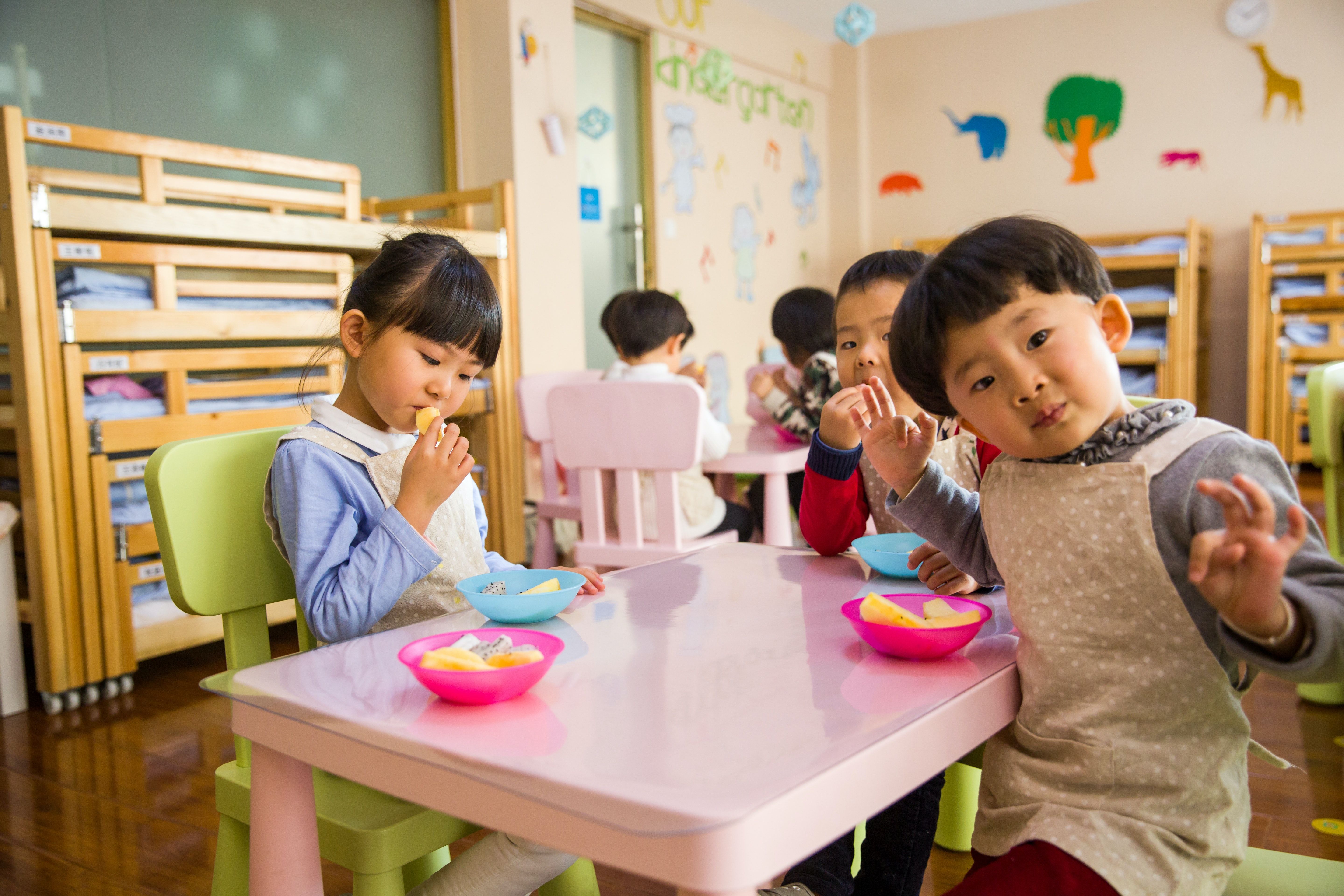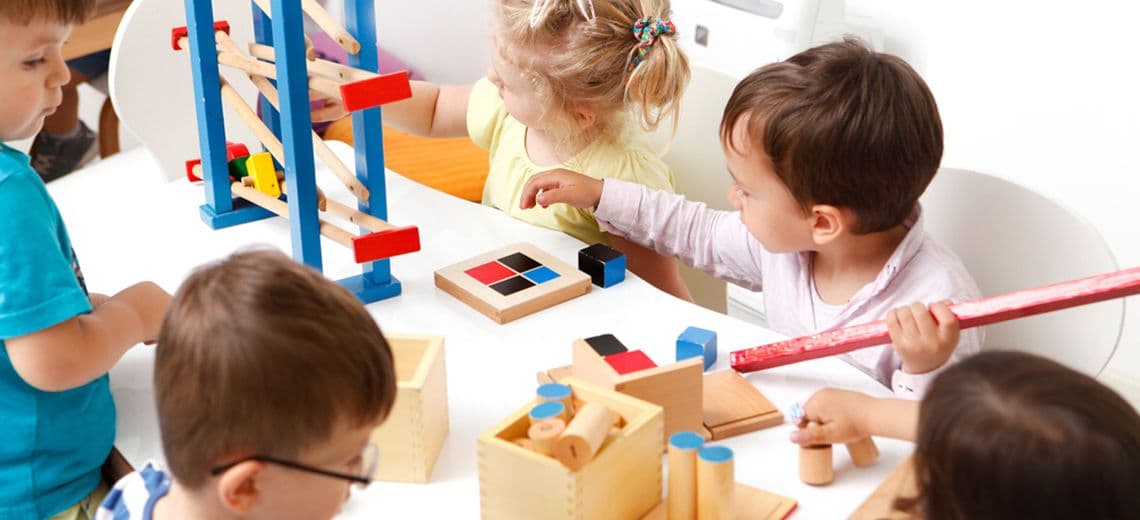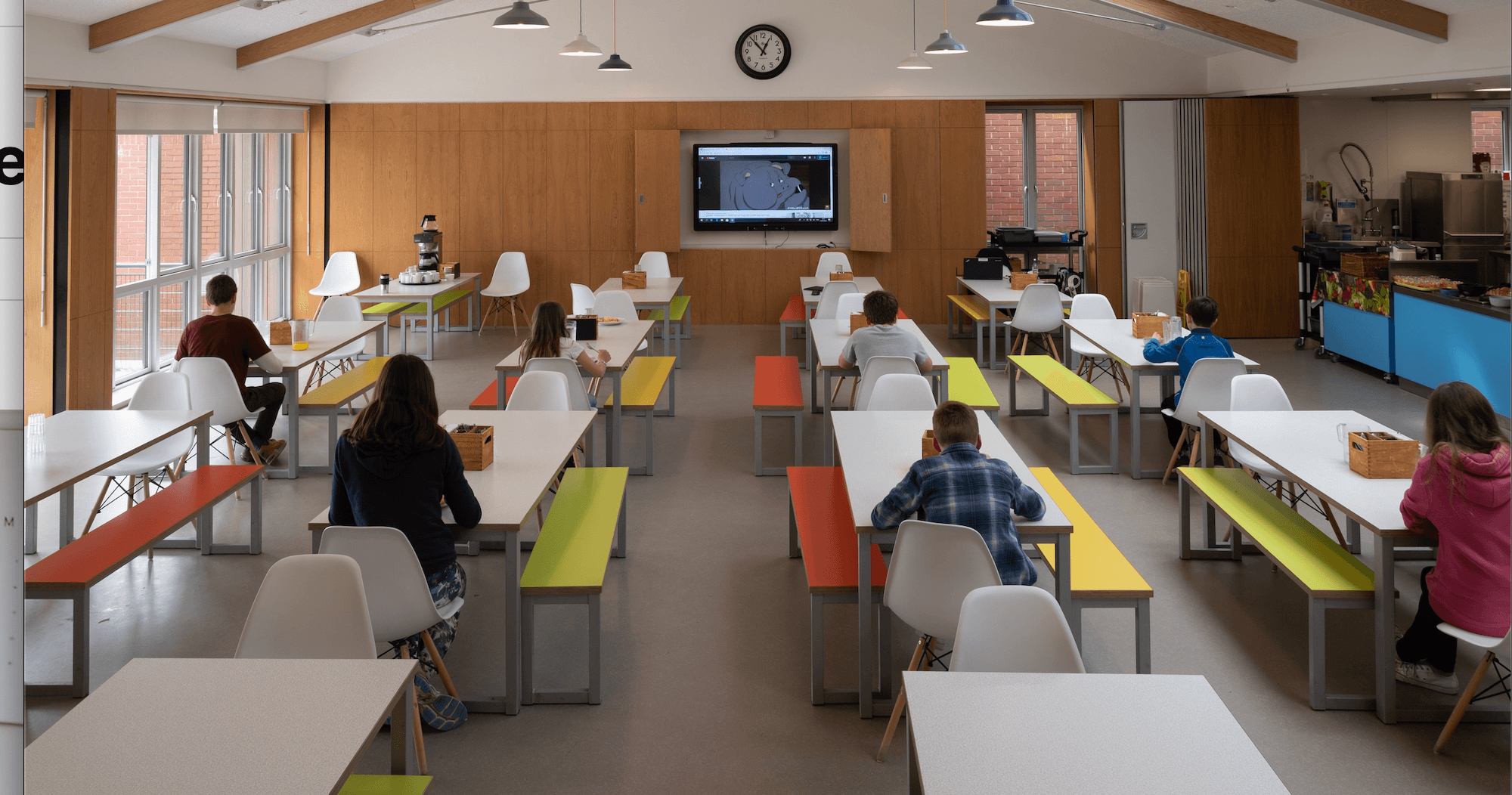
The Power of Relaxing Your Grip on Your Child's Education
As a parent, we desperately want the best for our children’s future. So when it comes to their education, it’s normal to focus heavily on future outcomes + goals. While this comes from a well-intentioned and loving place, this approach is missing one of the most important ingredients of a ripe learning environment: mindfulness.

As a parent, we desperately want the best for our children’s future. So when it comes to their education, it’s normal to focus heavily on future outcomes + goals. While this comes from a well-intentioned and loving place, this approach is missing one of the most important ingredients of a ripe learning environment.

Essentially, when we as parents operate primarily from a future-based approach (outcome-oriented; focus on grades, test scores, college acceptance, etc.), rather than a mindful approach (process-oriented; focus on play, creativity + mistakes), our children’s brains are less primed for learning.
In other words, when learning becomes pressured, the brain, quite simply, doesn’t operate as effectively. So, what are we as parents left to do when we naturally care about our child’s success, yet this deep care can backfire?
The Neuroscience of Play + Your Child’s Learning
Firstly, let’s take a closer look at the neuroscience behind play as it relates to your child’s brain + learning. Thankfully, due to exponential advances in positive psychology + neuroscience, we know that the cognitive function of the brain is enhanced in states of “play,” “flow state,” or “presence.”
These states are generally characterized by being fully immersed in the moment - versus doing something while focused on its future outcome. While there still may be a goal one is working towards, there is an ability to relax, let go of the future-based intention and simply be present with one’s current activity. As a result, these states tend to be accompanied by greater enjoyment + less stress.
On the flip side, when we’re not in this state, we’re thinking about whether what we’re doing is “good enough” to achieve the future-based goal. Instead of being completely immersed in the activity at hand, the activity of the brain is analyzing + assessing what we are doing, as we are doing it. This hypervigilance literally takes away energy from the brain’s ability to focus more readily on the task at hand. As a result, this diminishes the natural chemical reactions in the brain that assist learning + cognitive function.
When the brain is simply present in what it’s doing and in this state of play or “flow”, neuroscience shows that the brain’s “miracle gro” (a neurotransmitter that enhances the connections in the brain, i.e. supports learning, memory, problem solving, etc.) is boosted. Additionally, world-renowned positive psychologist and Harvard MBA researcher Shawn Achor illustrates in his book “The Happiness Advantage” the increases in creativity, ability to handle stress, task management, and executive functioning that are seen when the brain is in a relaxed, present, joyful state.
The recognition of the neuroscience of play + learning is becoming more and more mainstream, as there are even entire consulting companies dedicated to infusing play back into the workforce, even for adults. Thus, it’s becoming harder and harder to ignore the potentially counterproductive impact of future-based, pressure-filled academic environments on our children’s education (and happiness, of course!).
Your Parent Brain Becomes Your Child’s Brain
Perhaps even more important to note is the significant research demonstrating that we, as parents, are the “extended nervous system” of our children. In simpler terms, our brain state is actively influencing our child’s brain state. This process happens from infanthood onwards, as a child is always looking to their parents to regulate their internal state.
To take it one step further, through what are called “mirror neurons”, our children’s brains (yes, even in teenage years and through adulthood) quite literally attune to the emotional state of those around them. We have the powerful responsibility and gift of showing our children what is worth stressing over, and what isn’t. It’s important to take inventory of the potential role of our (again, well-intentioned) desire for our children to succeed and whether or not it’s truly helping.

Photo by Mel Daly
3 Steps You Can Take To Change You + Your Child’s Brain State for Relaxed Learning
So, how do we just “relax” when academic outcomes do play an important role in our child’s future? Firstly, you can address what is causing your child’s academic outcomes to feel so high stakes in the first place. An incredibly powerful tool to “lower the stakes” in your brain is neutrality. You can use neutrality + objectivity to assess the validity of your thoughts around any particular topic. Because we must remember that our brain is wired for survival - fear-based and very good at finding potential problems and worst-case scenarios.
1. Get Into A Neutral Brain State
While this helped us in times when our physical survival was threatened, operating from this place isn’t necessarily effective or even relevant in our modern world. Thus, you can simply ask - “Is it really 100% accurate that ______ (ex: my child’s entire future success + happiness rests so heavily in this one area of their life)?” This helps lower the stakes and question the validity of our brain’s fear-based thoughts. Another way of bringing in neutrality can be asking yourself - “Is there truly NO other evidence that supports _____ (ex: that my child can succeed + be happy in life without solely fixating on their academic outcomes)?”
2. Are Your Thoughts Even Achieving Anything?
Secondly, we must become aware of how often our future-based thoughts are not counterproductive.. Our fear-based mind feels a (false) sense of security by thinking about things. It feels like, “well, I must be making progress on ____ (my child’s future) if I’m thinking about it.” However, this isn’t necessarily true.
In any given moment, rather than simply thinking about something, we can either do something about it, plan to do something about it, or realize there’s nothing we can do right now and we must practice letting go. Letting go is the hardest part and can be eased by our next step.
3. Turning Off The “Useless” Brain Activity
The third step is learning to quiet the mind’s chatter. This is because the mind is what pulls us into the future, constantly thinking about our goals (vs. being able to simply be present in what we’re doing, still knowing we can achieve our future goals). So, how do we quiet the mind and “just be present”?
The key is having some sort of anchor, like your breath, to come back to when the mind is pulling you into future-based thoughts. When you notice your mind thinking “how is my child ever going to…” or “my child is falling behind, I’m so concerned that they won’t be able to...”, firstly, remind yourself that thinking about it isn’t necessarily achieving anything productive.
Then, redirect away from these thoughts by focusing on some sensory component of your breath - feeling it, hearing it, or seeing it (the rise and fall of your belly). As soon as your brain wanders back to future-based stressors, come back to the breath again and repeat. Repeat, repeat, and repeat. It’s not about living in this way 24/7, but rather, building the skill of relaxing the mind when it’s no longer serving you or your child.
As a natural result of doing these 3 things, your child will also be able to relax. Remember, they attune to our brain state, and we are teaching them what is worth stressing over or not. In doing so, this creates a positive feedback loop in which your relaxation creates a more productive space for learning.
Finally, when we are genuinely able to live in this way, we’re better equipped to help our children learn how to relax their own brain. And by being able to team up beside them and offer concrete tips on how to stress less, they’ll feel even more relaxed knowing we genuinely care about their state of mind as our number one priority. And ironically, taking the pressure off their success will help accelerate it.

About the Author
Mel Daly is a mother, mindfulness teacher, brain-body expert and personal trainer who helps clients release stress, find greater work-life flow, and achieve their wellness, personal + professional goals with greater ease and joy. Her approach is centered on the brain-body connection and enabling clients to experience greater momentum in all areas of their life when they no longer live in their head. She offers private virtual coaching, personal training, online mindfulness and wellness courses for mothers, retreats/workshops, e-books and free guided audios/videos. Learn more at her website www.thisismeldaly.com and her Instagram @meldaly_infinitiewellness!




